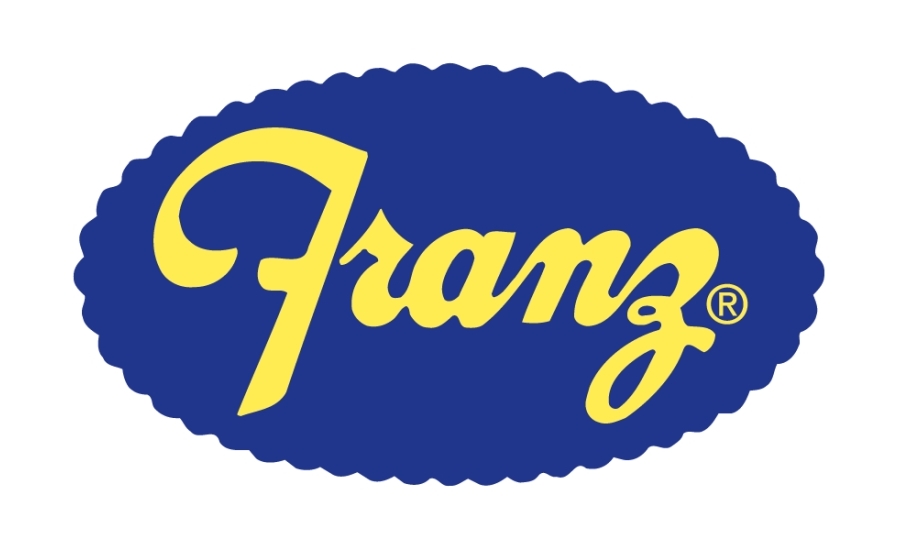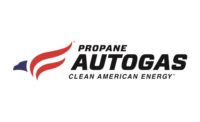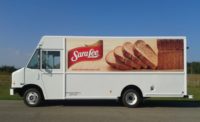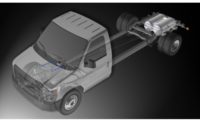Darren Engle
Fleets across the U.S. are switching to alternative fuels in order to create a cleaner environment and meet strict EPA emission reduction standards. Food and beverage delivery fleets in particular have been tasked with finding a solution that can significantly reduce emissions without sacrificing reliability or performance, or burdening budgets. An approved clean alternative fuel according to the Clean Air Act of 1990, propane autogas has proven to provide exactly that for one Portland-based business, Franz Bakery.
Propane autogas delivers
Franz Bakery is a fourth-generation family-owned company with nine bakeries throughout the Pacific Northwest. Having been in the baking business since 1906, the company has been delivering fresh baked goods with greener propane-autogas-powered vehicles since the 1970s.
Franz initially implemented propane into its fleet due to its lower fuel cost, but noticed the fuel offered many other unanticipated advantages. Propane autogas’ higher-octane level also eliminated repair issues associated with its gasoline-fueled vehicles.
“We were having constant piston failures with our gasoline vehicles—they were frequently out of commission and in the repair shop,” says Tommy Moreno, corporate fleet manager, Franz Bakery. “Not only did these repairs cost us in parts and labor, but they also cost us valuable time that could have been spent out on the streets making sales.”
After a positive first impression, Franz Bakery continued to convert vehicles to run on propane autogas over the last 40 years, with a major adoption of 40 vehicles in 2012. Today, Moreno reports that about 20 percent of the Franz fleet runs on propane autogas.
“Fueling with propane autogas is a no-brainer for us,” says Moreno. “From a purely economic standpoint, the cost of converting was repaid in a very short period of time. It burns cleaner, prolongs the life of engines, and helps Franz’s vehicles sail smoothly through Oregon Department of Environmental Quality regulations.”
Blue Star Gas helps Franz go green
Blue Star Gas, a 78-year-old company based in California, was also a major contributor to the bakery’s positive experience, according to Moreno.
“Blue Star came knocking on our door, and I was immediately impressed with their customer service,” said Moreno. “Similar to Franz, Blue Star Gas is a family business with strong morals and values. After they helped us seamlessly convert those 40 vehicles to propane autogas in 2012, they provided us with training and certified the company’s mechanics. They have continued to support us with great service ever since.”
Because Blue Star Gas provided training for the bakery’s mechanics, Franz is able to do all of its maintenance work in-house, which means they inquire no additional service costs. And, Blue Star was able to install refueling stations for Franz at no cost to the fleet other than a fuel contract; further lowering the bakery’s total cost of ownership.
“Blue Star Gas installed new propane refueling stations and cleaned up the entire refueling site,” says Moreno. “And, unlike the large underground gas and diesel tanks we replaced, which had a potential for leakage, the propane autogas tanks are installed above ground and carry much less risk.”
Propane is non-toxic and non-carcinogenic, and is a non-contaminant of soil, air and water. This means that propane autogas is not a hazard if released into the environment, and won’t harm the soil if spills or leakage occurs at the refueling site.
“We know that the Northwest is an environmentally conscious area, so using an alternative fuel and being sustainable is very important to our customer base,” says Moreno. “We strive to make a difference in our community—it’s something that’s extremely important to us.”
In April 1994, the bakery’s use of cleaner propane autogas earned the Franz a “Best Innovation Award” issued jointly by the City of Portland, the Association for Portland Progress and the Portland Business Journal.
Bringing in the dough
Propane-autogas-powered delivery vehicles are not only cleaner for the environment, but they’re easier on the wallet, as well. Over the lifetime of a typical fleet vehicle, propane autogas fuel systems can save a fleet thousands in fuel costs, not to mention savings from reduced maintenance, downtime and parts replacements.
Franz reports that its propane autogas fleet vehicles have lowered maintenance costs by more than 10 percent when compared with similar gasoline- and diesel-fueled vehicles. According to Moreno, this is because propane autogas produces less particulate matter, and thus “doesn’t require any emission-reduction devices or fuel additives, and places less wear-and-tear on engines,” he says.
“Propane-autogas-powered vehicles provide equal horsepower and towing capacity with no added weight,” says Moreno. “Propane engines don’t need additional devices to clean up the fuel before it reaches the tailpipe. Emission-reduction devices can take up space and infringe on valuable cargo and passenger space, they’re expensive to maintain, and they often lead to additional repairs due to parts failure.”
Moreno states that Franz has saved significantly on fuel costs over the last 40 years. And though he doesn’t have a firm number on total savings over time, he believes those savings are substantial enough to reinvest the fleet in propane for years to come.
“Our main source of income is selling and delivering baked goods,” says Moreno. “But my job is to maintain the fleet—and I like to think that cutting unnecessary expenses is another source of income. Propane autogas is affordable, reliable and—above all—it’s better for the environment. It just makes good business sense.”
Darren Engle is director of government relations for Blue Star Gas. For more information, visit http://bluestargas.com.






